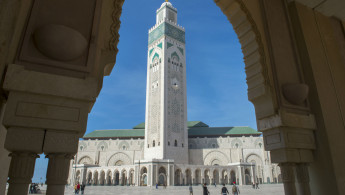Morocco religious authority rules no death penalty for apostates
Morocco's religious authorities have ruled that people who leave Islam should not be punished with the death penalty, reversing its previous ruling on apostasy.
The High Religious Committee decided last week to backtrack on its 2012 ruling that Muslims who change their religion should be put to death.
"The most accurate understanding and the most consistent with the Islamic legislation… is that the killing of the apostate is meant for traitors of the group, the one disclosing secrets," the committee said in a document, according to local media.
The religious authority, which in charge of issuing fatwas, argued that apostates during the infancy of Islam were the people who betrayed Muslims at a time when they were at war with rebellion in the Arabian peninsula.
The committee cited an example when the Prophet Muhammad allowed a Muslim who had renounced his faith to return to the Quraish tribe, which was the main enemy of the fledgling Islamic nation at the time.
Morocco does not impose the death penalty against apostates under the provisions of its penal code.
Apostasy or blasphemy can be punished with death sentences in some Muslim-majority countries, among them Iran, Mauritania, Pakistan, Qatar, Saudi Arabia, Somalia, Sudan, United Arab Emirates and Yemen.
In other Muslim countries alleged apostates can be imprisoned, fined, lose their citizenship or custody of their children.
Last month, Morocco reportedly banned the production and sale of burkas - the full-face Muslim veils - for "security reasons".
Most women in Morocco, whose King Mohammed VI favours a moderate version of Islam, prefer the hijab headscarf that does not cover the face.
The burka/niqab, which leaves the area around the eyes uncovered, is also worn in Salafist circles and in more conservative regions in the north, from where thousands of extremists have gone to fight in Syria and Iraq.
Morocco's ban on the sale and production of the burka beloved of ultra-orthodox Muslims has sharply divided opinions in the North African country.





 Follow the Middle East's top stories in English at The New Arab on Google News
Follow the Middle East's top stories in English at The New Arab on Google News


